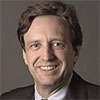The Moral Vacuum
Secularism has banished the most inconvenient traditions of the centuries, and the moral vacuum left in its place is seen as liberation. People may behave as they wish, so long as they tithe support to the state. That we digress to savagery is pleasing as Rousseau would imagine, but it requires a bloated government machinery to pick up the pieces.
Its political support rests upon two pillars: One is recruitment of more who work directly on its behalf at above private-market wages (public sector employees earn over $100,000 on average including benefits, a 50 percent premium to the private sector), and the second is a widening net of support directed at the bottom half of income earners.
The tremendous advances yielded by capitalism continue to create wealth. Before the working wealthy were required to work five months per year for the government, and then turn over the fruits of another three upon death (plus one or more to pay property, excise, and other taxes), it was more common for successful individuals (more typically spouses) to become personally involved to aid the less fortunate, often under the mantle of their religious faith.
Today, the rain of cash directed at society’s needy falls from a distant cloud whose moisture is fed by Form 1040E, often subsidizing depravity and keeping misery from the view of rich neighborhoods.
We will probably never produce a Utopian classless society. However, progress toward the improvement of standards of living across this Earth should continue. Poverty may never disappear entirely, but economic advancement is lifting large swaths of humanity from it all over the world.
The disparity between rich and poor should not be offensive, per se. What should be is the government’s insertion between the relationship, which fractures any social bonds and moral common ground. Empathy for the poor, that the rich might have, has been replaced with faceless government programs.
Those who build businesses and create jobs and wealth instead feel resentment that the government is draining their resources quite pointedly, and liberal politicians receive the approbation of the masses for playing Robin Hood. Never mind that Robin Hood’s nemesis was the sheriff of Nottingham, the tax collector of the state who impoverished the populace with regressive taxation (much like the situation of Imperial Rome).
Secularists of all kinds maintain they occupy the highest intellectual ground. Like socialists who cannot grasp that the complex, unanalyzable, and unforecastable system developed through economic traditions is superior to those that are rational and devised by a few men, those who would reject the original Constitutional bounds are unwilling to recognize absolutes over centralized tinkering.
This living, breathing interpretation of our political system is subject to man’s attempts to subjugate other men through the power of the state, and substitutes the wisdom and desire of the few for the character of individuals.
Perhaps a secular nation can grow to respect absolutes such as the Founding Fathers’ desire for limited, representative government. But it has failed thus far.
The modern technocrat, filled with conceit that he can prove the benefit of each new regulation or social program exceeds its cost, will never favor the individual over the state, ever.
Regards,
Bill Baker,
for The Daily Reckoning
[Editor’s note: This passage is reprinted from William W. Baker’s book, Endless Money: The Moral Hazards of Socialism, with the permission of John Wiley & Sons, Inc (©2010). You can get your own copy of his book here.]


Comments: